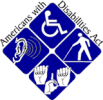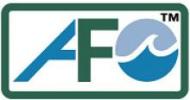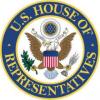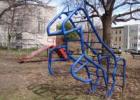Miscellaneous
Americans with Disabilities Act

The Americans with Disabilities Act (ADA) is a civil rights law that prohibits discrimination against individuals with disabilities in all areas of public life, including jobs, schools, transportation, and all public and private places that are open to the general public.
Aquatic Facility Operator

The National Recreation and Park Association (NRPA) began offering the Aquatic Facility Operator (AFO) certification in 1995. This five year certification is for professionals who manage and operate aquatic facilities and covers pool chemistry, management, safety, and risk reduction practices.
Certified Park and Recreation Executive

The Certified Park and Recreation Executive certification is a mastery-level certification program for park and recreation management and administration professionals. The Certified Park and Recreation Executive certification is offered by the National Recreation and Park Association.
Certified Park and Recreation Professional

The National Recreation and Park Association offers the Certified Park and Recreation Professional certification for professionals in the parks, leisure, and recreation fields. The 150 question exam, which covers areas of general administration, programming, and operations management, has been designed to assess basic job-related knowledge common to entry level professionals.
Children's Outdoor Bill of Rights

The California Roundtable on Recreation, Parks and Tourism identifies ten outdoor activities that represent the basic outdoor needs of children for healthy development called the Children's Outdoor Bill of Rights. Many other states have adopted their own Children's Outdoor Bill of Rights to encourage outdoor and nature play.
Convention on the Rights of the Child

A United Nations legally binding treaty, the Convention on the Rights of the Child incorporates respect for all children's needs. Article 31 of the Convention on the Rights of the Child gives the child the right to play.
Decade for Childhood

The Association for Childhood Education International (ACEI) and Alliance for Childhood joined together to launch a 10-year initiative, the Decade for Childhood 2012-2022. The Decade for Childhood invites individuals and organizations to join their global initiative to work with others to create positive conditions in which all children can grow with hope, joy, freedom, and promise for the future.
Frost Play Research Collection
The Frost Play Research Collection was dedicated in the spring of 2004 with the purpose of making available historical and contemporary research material for students and play scholars. The collection of teacher, researcher, and author, Dr. Joe L. Frost, is comprised of materials from his extensive research library and donated material.
IPEMA Certification

In October of 1995, the International Play Equipment Manufacturers Association (IPEMA) was formed by a group of twelve playground equipment manufacturers. They saw the need for a trade organization that would provide third-party physical validation of compliance to the safety standards as outlined in the ASTM International (ASTM) F1487.
Natural Play and Learning Areas Guidelines Project
The Natural Play and Learning Areas Guidelines Project is dedicated to "bringing nature back into the daily lives of children" and thus to improving children's health, happiness, and scholastic achievement. The Guidelines Project has developed natural play and learning sites which demonstrate how children can "connect, play and learn in nature."
No Child Left Inside Act

On September 18, 2008, the U.S. House of Representatives approved the No Child Left Inside Act, H.R. 3036. The NCLI Act was initiated partially because of the consequences of the No Child Left Behind Act, which narrowed the focus of the schools on standardized testing and left children with little or no outdoor or environmental experiences.
Novelty Playground Era

The novelty playground era is the time period in playground history when play spaces departed from the typical basic metal play equipment, concrete pipe designs, and asphalt surfacing of the early 20th century to designs with bright colors and thematic, sculptured play structures.
Organized Camping Movement

The organized camping movement was a distinctively American solution of the larger child-saving movement of the late 19th century and early 20th century. As the cities swelled with displaced families, undesirable child labor and crowded living conditions fueled several movements to save the children and raise a moral generation of citizens.
Play and Playground Encyclopedia

In 2009, Curtis Stoddard developed the concept of a business plan for a play and playground encyclopedia. The Play and Playground Encyclopedia mission statement is that the encyclopedia is to research and document play and playground information in a general nonbiased, fact-based synopsis that gives a reader a brief but accurate assessment of that play or playground information.
Play Every Day Act

The PLAY Every Day Act was a bill proposed to help promote the national recommendation of physical activity to kids, families, and communities across the United States. The purpose of this Act was to help children, families, and communities achieve 60 minutes of physical activity every day, which is the national recommendation.
Playground Movement

The playground movement in America began as an answer to the industrial revolution realities of crowded cities and long work days. Hand-in-hand with the settlement houses being formed in the late 19th century, the playground movement sought to save the poor, immigrant, and homeless children from unhealthy crowded tenement neighborhoods.
Red Swing Project

The Red Swing Project is the result of a University of Texas School of Architecture assignment as an urban intervention within the city of Austin, Texas. In February of 2007, one student began to anonymously hang red swings in public places to infuse a sense of playfulness into the urban environment. The assignment took on the feel of a science experiment as reactions to the red swings were observed.
U.S. Consumer Product Safety Improvement Act
On August 14, 2008, Congress passed the U.S. Consumer Product Safety Improvement Act of 2008. This law was necessary to "establish consumer product safety standards and other safety requirements for children's products and to reauthorize and modernize the U.S. Consumer Product Safety Commission."

